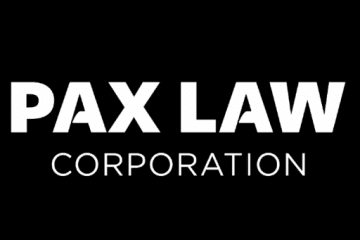Table of Content
Navigating the complexities of zoning laws and land use regulations is critical for any real estate development or property investment in British Columbia (BC). This blog post provides an overview of zoning regulations, their implications for property development, and practical advice for compliance. This will be especially useful for developers, property owners, and legal professionals working within the BC real estate market.
Understanding Zoning Laws in British Columbia
Zoning laws in BC are designed to regulate land use and guide urban and rural development. These regulations determine how land can be used, what types of buildings and activities are permissible, and the densities at which those activities can occur. Zoning laws help municipalities plan for changes and growth, ensuring that the development is sustainable, efficient, and in the public interest.
Key Elements of Zoning Regulations
- Land Use Classifications: Land in BC is categorized into residential, commercial, industrial, agricultural, and other specific uses. Each classification has its own set of standards and restrictions.
- Development Guidelines: Zoning laws dictate specifics such as the height of buildings, the distance they must be from the street and other properties, and the percentage of the land that can be covered by structures.
- Special Zones: Some areas are subject to special zoning rules because of environmental concerns, historical significance, or particular developmental pressures.
Impact of Zoning Laws on Property Development
Zoning laws can significantly affect property values and the feasibility of development projects. For instance, a change from residential to commercial zoning can increase a property’s value, offering more lucrative development opportunities. Conversely, stringent regulations in environmentally sensitive areas might limit development options, affecting profitability.
Navigating Zoning Changes and Exceptions
Property developers and owners often face the need to change the zoning designation of their property or seek exceptions to existing zoning laws. This process can involve:
- Rezoning Applications: Submitting a proposal for a change in zoning to accommodate a new development that doesn’t conform to current zoning restrictions.
- Variances: Requesting a variance can be a solution when a developer’s proposal slightly deviates from zoning laws. Variances are usually granted when compliance with the zoning code is impractical or imposes unnecessary hardships.
- Public Consultations: Many zoning changes require a public consultation process, where community members can express their support or concerns about a project.
Legal Considerations and Compliance
Legal guidance is crucial when dealing with zoning laws and land use issues. Lawyers specializing in real estate law can provide:
- Expertise on Regulatory Compliance: Ensuring that all aspects of a development are in line with provincial and local regulations.
- Assistance with Applications and Hearings: Navigating the application process for rezoning, variances, and other permits.
- Representation in Disputes: Defending clients’ interests in disputes over land use, whether in negotiations, hearings, or court.
Best Practices for Developers and Property Owners
- Stay Informed: Keeping up-to-date with the local zoning laws and any planned changes is essential for strategic development and investment.
- Engage Early with Authorities: Early engagement with planning authorities can streamline the approval process and uncover potential issues before they become problematic.
- Community Engagement: Building a positive relationship with the community can facilitate smoother project approvals and enhance public support.

You can typically find zoning information on your local municipality’s website or by contacting the city’s planning department directly.
Consider applying for a rezoning or variance. Consulting with a real estate lawyer can also provide guidance on the best approach based on your specific circumstances.
The time frame can vary significantly depending on the locality, the complexity of the proposal, and the extent of public opposition or support. Generally, it can take several months to over a year.
Yes, municipalities can change zoning laws to reflect new planning strategies or community needs. It’s important to stay informed about potential changes that could affect your property.
Yes, penalties can include fines, orders to cease construction or use of the property, and in some cases, mandatory demolition of unauthorized constructions.
Pax Law can help you!
Understanding and complying with zoning laws and land use regulations is essential for successful property development and investment in British Columbia. Engaging with legal experts and local authorities early in your project planning can save time, costs, and ensure that development activities proceed smoothly.
Our lawyers and consultants are willing, ready, and able to assist you. Please visit our appointment booking page to make an appointment with one of our lawyers or consultants; alternatively, you can call our offices at +1-604-767-9529.



0 Comments